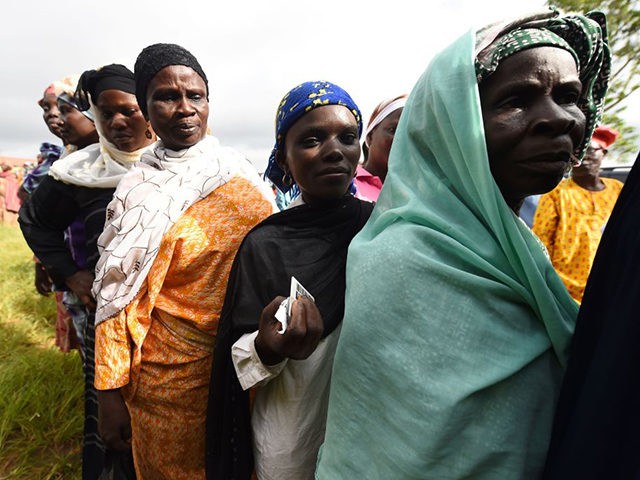Nigerian health officials say a considerable number of Nigerians refuse to get treatment for malaria because they fear contracting the Chinese coronavirus at clinics.
Fatima Mohammed, who currently lives at a displaced persons camp in the Nigerian capital, Abuja, told Voice of America (VOA) on Friday that she suspects her two sons have both contracted malaria, but she has chosen to treat them for their symptoms at home.
“I don’t have money to take them to the hospital — and, again, at the hospital, they’ll easily call it coronavirus,” she said, adding, “I don’t have money for that.”
Malaria, a mosquito-borne infectious disease, and the Chinese coronavirus present similar symptoms, including “fever, difficulty in breathing, fatigue, and headaches of acute onset. Thus, a malaria case may be misclassified as COVID-19 [coronavirus] if symptoms alone are used to define a case … and vice versa,” according to the International Journal of Infectious Diseases.
Health officials have recorded a significant decrease in the number of malaria patients seeking outpatient care for the illness in Nigeria since the nation’s coronavirus epidemic began early last year. The malaria patients cite “fearing the risk of becoming infected with COVID-19 [coronavirus]” at a hospital and being “hindered by lockdowns and lack of transport” as reasons for abstaining from care, the World Health Organization (W.H.O) revealed in its World malaria report 2020. The annual malaria report suggested that the coronavirus pandemic has and continues to threaten years of progress made in eradicating malaria. The study’s authors warned that fatality rates of the illness could double if current trends continue.
The coronavirus epidemic has disrupted “the use of long-lasting insecticidal nets, seasonal malaria chemo prevention, and prevention of malaria in pregnancy,” in Nigeria, according to W.H.O. malaria consultant Lynda Ozor.
“So, assuming all these preventive interventions were interrupted, then it was expected, and the model shows that there will be very negative effects,” she added, suggesting that rates of malaria in Nigeria may spike as a result of the interruptions.
Nigeria’s National Malaria Elimination Program planned to provide 31 million people in the country with free mosquito nets, anti-malaria drugs, and malaria testing last year. The pandemic disrupted the distribution plans, however, resulting in the program aiding only half of the people they had intended to reach, according to VOA.
Nigeria accounted for about 23 percent of malaria cases and deaths worldwide in 2019. The W.H.O. recorded 229 million cases of malaria globally in 2019 compared to 228 million cases in 2018. The African continent accounts for 94 percent of all malaria cases and deaths worldwide.

COMMENTS
Please let us know if you're having issues with commenting.